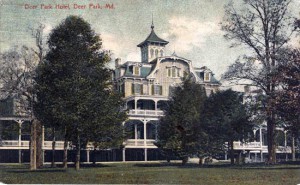Tax Deductions for Vacation Homes
March 12, 2010 by cloeffler
HouseLogic: NAR’s new consumer Web site, offers everything home owners need to increase, maintain and protect the value of their home.
Tax deductions for vacation homes vary greatly depending on how much you use the home and whether you rent it out. You can rent out a vacation home for as many as 14 days per year without paying taxes on your rental income.
A vacation home offers a break from the daily grind, but it can also offer a break from taxes. The IRS allows most owners to lower taxable income by taking tax deductions for vacation homes. What’s deductible depends on a number of factors, especially how often you visit and whether you allow renters.
Don’t limit your notion of a vacation home to a beach cottage or a mountain cabin. Even RVs and boats can count, as long as there are sleeping, cooking, and bathroom facilities. Tax deductions for vacation homes are complex, so consult a tax adviser.
Is your vacation home a vacation home?
If you bought your vacation home exclusively for personal enjoyment, you can generally deduct your mortgage interest and real estate taxes, as you would on a primary residence. Use Schedule A to take the deductions.
The IRS even allows you to rent out your vacation home for up to 14 days a year without paying taxes on the rental income. You might be able to deduct any uninsured casualty losses too, though you can’t write off rental-related expenses. If the home is rented for more than 14 days, you must claim the income.
Now, if you own what you consider a vacation home but never visit it, or only rent it out, other tax rules apply. Without personal use the home is considered an investment or rental property by the IRS. Time spent checking in on a house or making repairs doesn’t count as personal use.
Tax deductions for rental owners
As an exclusive rental property, you can deduct numerous expenses including taxes, insurance, mortgage interest, utilities, housekeeping, and repairs. Even towels and sheets are deductible. Use Schedule E. You can also write off depreciation, the value lost due to the wear and tear a home experiences over time.
Treat the rental property like a business, says Mark Steber, chief tax officer at Jackson Hewitt Tax Services. Keep detailed records and maintain a separate checking account. Figure you’ll spend a couple of hours a week, on average, over the course of the year managing the property.
To maximize deductions you need to be actively involved in the rental property. That means performing such duties as approving new tenants and coming up with rental terms. You also need to own at least 10% of the property. See IRS Publication 527 for details.
If your adjusted gross income is $100,000 or less you can deduct from your taxable income up to $25,000 in rental losses—that is, the difference between your rental income and your rental expenses. The deduction gradually phases out between an AGI of $100,000 and $150,000. You may be able to carry forward excess losses to future years, or use losses to offset taxable gains when you sell.
Expenses can add up. HOA fees (average: $420), routine maintenance costs ($360), and six months’ worth of utilities ($1,100) alone total nearly $2,000. By deducting $2,000 from taxable income of $100,000, a married couple filing jointly would cut their tax bill by $488.
Mixed use of a vacation home
The tax picture gets more complicated when in the same year you make personal use of your vacation home and rent it out for more than 14 days. Remember, rental income is tax-free only if you rent for 14 days or fewer.
The key to maximizing deductions is keeping annual personal use of your vacation home to fewer than 15 days or 10% of the total rental days, whichever is greater. In that case the vacation home can be treated as a rental, meaning you get the same generous deductions. To avoid going over the 10% limit, essentially you shouldn’t use your vacation home more than one day for every 10 days you rent it.
Make personal use of your vacation home for more than 14 days (or more than 10% of the total rental days), however, and your deductions may be limited. If your rental income is less than your rental expenses, for example, you can’t use the loss to offset other sources of income. There’s a worksheet that determines which expenses you can carry over to the following year.
Another big blow: The IRS requires you to divide expenses between personal use and rental use. Let’s say you have a vacation home you personally use for 25 days and rent for 75 days. That’s 100 total days of use. You can only write off 75% of the expenses as rental expenses—75 rental days divided by 100 total days of use works out to 75%. Some of the personal expenses, such as mortgage interest and real estate taxes, may be deductible on Schedule A.
IRS closes tax loophole
A popular strategy used by owners of vacation homes to avoid paying capital gains on a sale was to convert a vacation home into a primary residence. This was accomplished by living in the home for two years out of the previous five before selling. By doing so a gain on the sale of up to $250,000 for single filers ($500,000 for married filing jointly) was tax-free.
The IRS hasn’t done away with the cap-gains exclusion, but it is closing the loophole for vacation homes. Starting in 2009, you have to pay regular cap-gains taxes on the portion of the gain that’s equivalent to the time you used the home as a vacation home after 2008.
Let’s say on Jan. 1, 2010, you move into a vacation home you bought on Jan. 1, 2002. Two years later you qualify for the cap-gains exclusion and decide to sell. You’d pay regular capital gains on 10% of the gain because in 2009 the home was a vacation home subject to the new IRS rules. The other nine years—2002 to 2008, when the old rules applied, and 2010 to Jan. 1, 2012, when the home was used as a primary residence—qualify for the exclusion.
This article provides general information about tax laws and consequences, but is not intended to be relied upon by readers as tax or legal advice applicable to particular transactions or circumstances. Readers should consult a tax professional for such advice, and are reminded that tax laws may vary by jurisdiction.
Donna Fuscaldo has written about personal finance for more than 10 years at the Wall Street Journal, Dow Jones Newswires, and Fox Business. She one day hopes to own a vacation home in the Catskills of New York.
http://www.houselogic.com/articles/tax-deductions-vacation-homes/
If you are thinking of buying or selling real estate in Garrett County or Deep Creek Lake, Maryland, call Jay Ferguson of Railey Realty for all of your real estate needs! 877-563-5350











